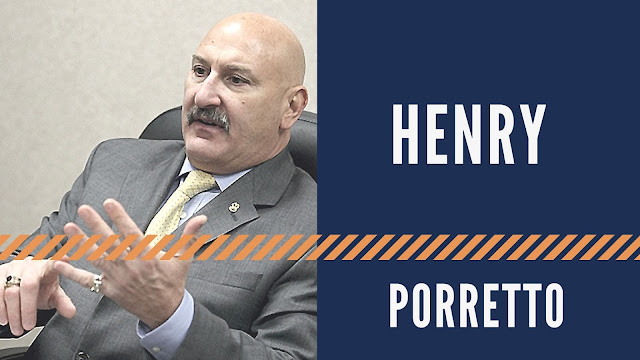Henry Porretto - Talks About Body Cams and Interference
Are Physical Cams the Solution to Damaging Police Habits?
Henry Porretto Crunchbase
In the wake of numerous police interactions that have been captured on video by bystanders, police departments and their personnel are facing greater scrutiny than ever before. In an effort to enhance community policing and to establish accountability among officers and departments , many police departments across the country have adopted "body cams", or small video-recording devices that record every minute of an officer's shift on patrol.
Or are other methods of policing a better solution? Over a decorated 30 year career in law enforcement, Chief Henry Porretto, former Chief of Police for the Galveston Police Department and a consultant for Texas law enforcement agencies, believes that peer intervention is a better solution.
In the wake of numerous police interactions that have been captured on video by bystanders, police departments and their personnel are facing greater scrutiny than ever before. In an effort to enhance community policing and to establish accountability among officers and departments , many police departments across the country have adopted "body cams", or small video-recording devices that record every minute of an officer's shift on patrol.
Or are other methods of policing a better solution? Over a decorated 30 year career in law enforcement, Chief Henry Porretto, former Chief of Police for the Galveston Police Department and a consultant for Texas law enforcement agencies, believes that peer intervention is a better solution.
The Blue Code
For decades, police officers have been operating under the so-called "Blue Code", protecting one another for good and for bad. Many police officers in our nation have adopted an "us vs. them" mentality, choosing to keep quiet about illegal or inappropriate behavior on the part of their fellow officers. Henry Porretto believes that peer intervention is needed to break the cycle and the stigma of the Blue Code.
Take, for example, the recent coverage of an overzealous Salt Lake City police detective arresting a nurse for protecting the rights of her patient. If another officer was able to question the actions of that detective and intervene, the situation could have been diffused. Other officers were present during the encounter, and surely one of them questioned the actions of his fellow officer.
Body Cams and Liability
Peer intervention seems to be the logical path forward for police departments hurt by negative interactions with the communities they are sworn to serve. Still, there is a place for video recording devices like body cams. That increases the possibility of police officers being more careful with their behaviors and staying within their responsibilities and rights to do the right thing on duty when activities are recorded. Knowing that their actions are being captured may cause officers to rethink what they are doing, helping to prevent incidents that may cast their departments in a bad light.
Body cams increase accountability, but they are no substitute for good police behavior. If this training can help stop improper behavior, police departments can do much to regain the community trust lost in unfortunate situations.





Comments
Post a Comment